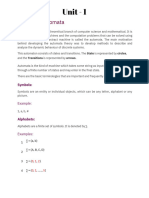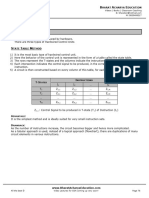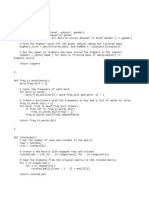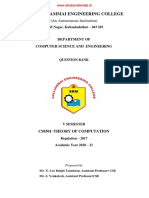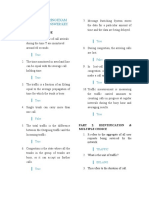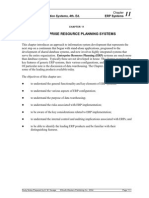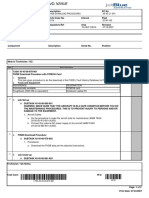0% found this document useful (0 votes)
1K views22 pagesWhat Is Lambda Function in Python?
Lambda functions are anonymous functions that can take any number of arguments but can only have a single expression. They are generally used when a function is needed temporarily or when passing a function as an argument to another function. Lambda functions can accept positional, keyword, and variable arguments like regular def functions. They reduce lines of code compared to def and allow defining and calling a function immediately. Higher order functions that take other functions as arguments can also be written using lambda.
Uploaded by
PILLINAGARAJUCopyright
© © All Rights Reserved
We take content rights seriously. If you suspect this is your content, claim it here.
Available Formats
Download as PPTX, PDF, TXT or read online on Scribd
0% found this document useful (0 votes)
1K views22 pagesWhat Is Lambda Function in Python?
Lambda functions are anonymous functions that can take any number of arguments but can only have a single expression. They are generally used when a function is needed temporarily or when passing a function as an argument to another function. Lambda functions can accept positional, keyword, and variable arguments like regular def functions. They reduce lines of code compared to def and allow defining and calling a function immediately. Higher order functions that take other functions as arguments can also be written using lambda.
Uploaded by
PILLINAGARAJUCopyright
© © All Rights Reserved
We take content rights seriously. If you suspect this is your content, claim it here.
Available Formats
Download as PPTX, PDF, TXT or read online on Scribd
/ 22














